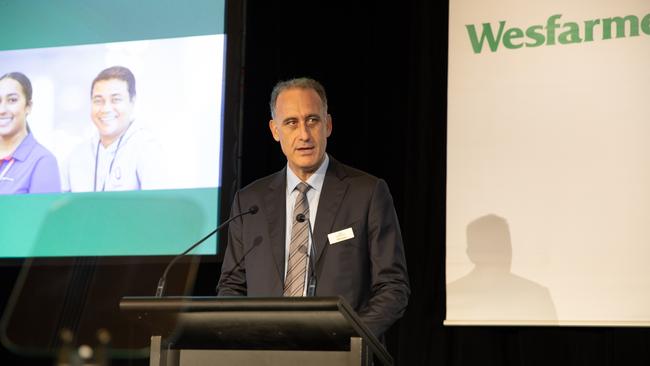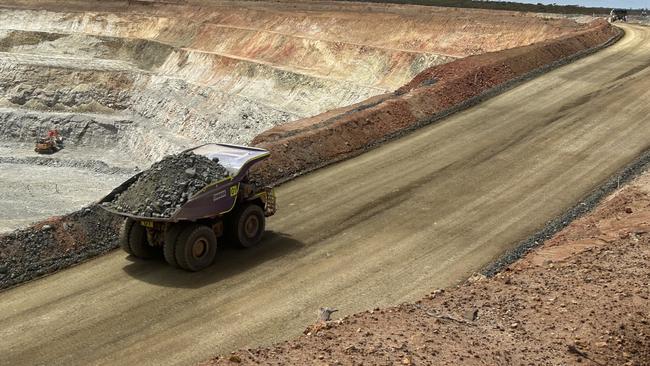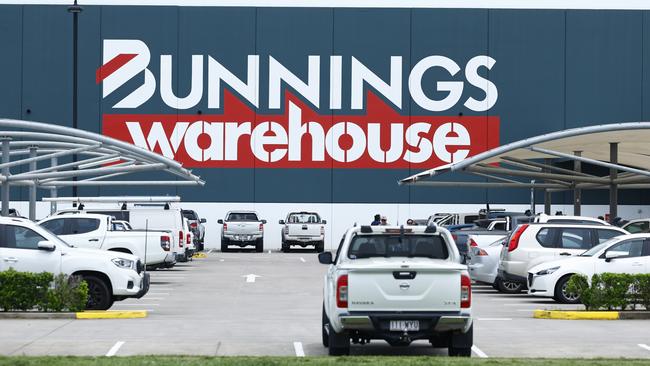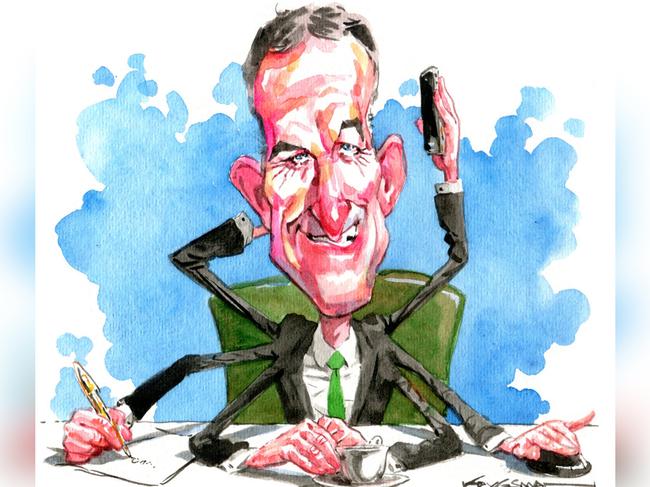
While acquisitions of logical adjacencies or bets on “step-out” opportunities are on the agenda for Scott, much of his focus is around tapping the latent growth available inside his existing businesses.

This is pushing names like Bunnings, or healthcare into new businesses lines while using the power of digital and analytics to bring together the potential of his millions of customers.
“We’re really going harder at unlocking growth opportunities,” Scott tells The Australian in an interview.
This is the subtle but important strategy shift that Scott was keen to get across as part of his annual investor briefing he fronted in Sydney on Thursday.
The perennial challenge for the Wesfarmers boss is to convince investors that his company is a more efficient owner of a portfolio of businesses that often have little connection to each other. And that means he needs to show that the rivers of cash generated by Bunnings are better off being reinvested elsewhere across Wesfarmers for future growth bets, instead of it going directly into shareholders’ pockets.
Scott points to Wesfarmers’ record of substantially outperforming the broader ASX over five years, 10 years and since listing four decades ago as an indicator of being an astute allocator of capital.

So too, the portfolio is dynamic with Wesfarmers prepared to turn it over. Under Scott Wesfarmers has been dramatically reshaped, with capital hungry Coles spun out several years ago, while totally new lines of businesses like healthcare have been added. This includes the acquisition of the Priceline pharmacy chain and more recently the on-market buyout of Silk Laser clinics.
Scott’s biggest bet however is the backing of the $2bn-plus greenfield Mt Holland lithium mine and construction of the associated processing plant under the Covalent venture, bringing value-added lithium production into Australia.
It is these two areas, healthcare and lithium, that will be ones to watch for future growth as they are attracting the lion’s share of new capital.
Scott admits Wesfarmers doesn’t always get it right. Namely, the $230m acquisition of online retailer Catch five years ago. This has cost shareholders more in losses than the initial outlay, and Scott has since pushed through a radical restructuring which he says is on track to cut losses. Catch as an investment has “underperformed” Scott says, however the assets that came with it were able to be used by Wesfarmers’ retail brands to launch their own e-commerce platforms.
Elsewhere, an overarching division, OneDigital under former News Corp executive Nicole Sheffield, is rolling out a cross-brand loyalty program that is hoped to deliver analytics right across Wesfarmers’ vast retailing footprint as well as new media income stream.
Scott says his brands have been able to drive their own organic growth. The retailer Kmart was able to lean into the cost of living pressures by overhauling the back-end – namely through the merger of discount department stores Target, to help keep its own costs as low as possible, helping to drive sales. Kmart’s long-term bet on its own-branded range of low-cost homeware goods, called Anko, has thrived in the face of high-inflation.
Proving Wesfarmers’ brands can continue to deliver value to households will be even more important if interest rates remain higher for longer, or even if the next cash rate move is up, Scott adds.

Despite the external pressures, the mix of businesses he has are on the whole in the best shape they have been for some time and managing the economic pressures, and the growth he is talking about is from within rather than acquisitions.
Scott too has put a challenge out to governments: get rid of inefficient state-based taxes such as payroll tax and restructure stamp duty to free up housing and free up business, and he will respond by investing more into the economy.
Scott points to the development of Mt Holland lithium mine that is ramping up. The West Australian government has backed infrastructure getting to the site, at the same time Wesfarmers is looking past high gas prices to upgrade its fertiliser plants with support from the federal government’s climate-focused Powering the Regions Fund.
“We’ve got the capacity to invest a lot more. And when the settings are there to facilitate and encourage the investment, we are really getting behind it,” he says.
johnstone@theaustralian.com.au





Just as many chief executives are bunkering down, preparing for a slowdown to arrive, Rob Scott is looking over the horizon. The Wesfarmers boss wants investors to start thinking about his 110-year-old conglomerate that runs blockbuster brands from Bunnings, Kmart and Officeworks as more than a cash generator, but as a business geared for growth.